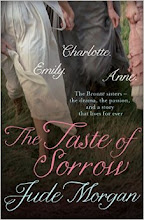The adjective most applied in publicity for and reviews of this novel is "timely", which in some ways does it a disservice. It is about the First World War, and so, in this centenary year, is indeed auspicious, but there is a richness to Wake that raises it above the average.
Briefly, it takes place over the 5 days in 1920 when the 'Unknown Warrior' was selected and brought from the battlefields of France to his final resting place in Westminster Abbey. The story follows three women, each touched by the loss of a loved soldier during the war. To say more would be to give too much away.
It is beautifully written, in prose that conjures without inappropriate embellishment: London two years after the war is described as a "post-khaki world". I found I understood all three characters - they seem to represent three stages of life - without necessarily liking them or even agreeing with their views or behaviour. The five days are also symbolic: the exhumation of the body as the women confront their issues; the journey of the Unknown Warrior as the women fight their demons and learn new truths; its arrival at Westminster Abbey as those demons are laid to rest. This analogy is not as clunky as my explanation makes it sound, however. The book is a Galaxy chocolate bar, smooth as silk, the storylines winding in and out of each other like funereal ribbons.
I could easily see this as a BBC drama, and if you want to see how it would look, check out the YouTube footage of the procession of the coffin; you can almost see Ada and Ivy laying wreaths at the cenotaph.
Wake is a superb example of its type, an intelligent, interesting, well-written story that rewards the thoughtful reader. Anna Hope could potentially give the likes of Helen Dunmore a run for her money, and I look forward to hearing more from this first timer in the near future.
Friday, 4 July 2014
Subscribe to:
Comments (Atom)

